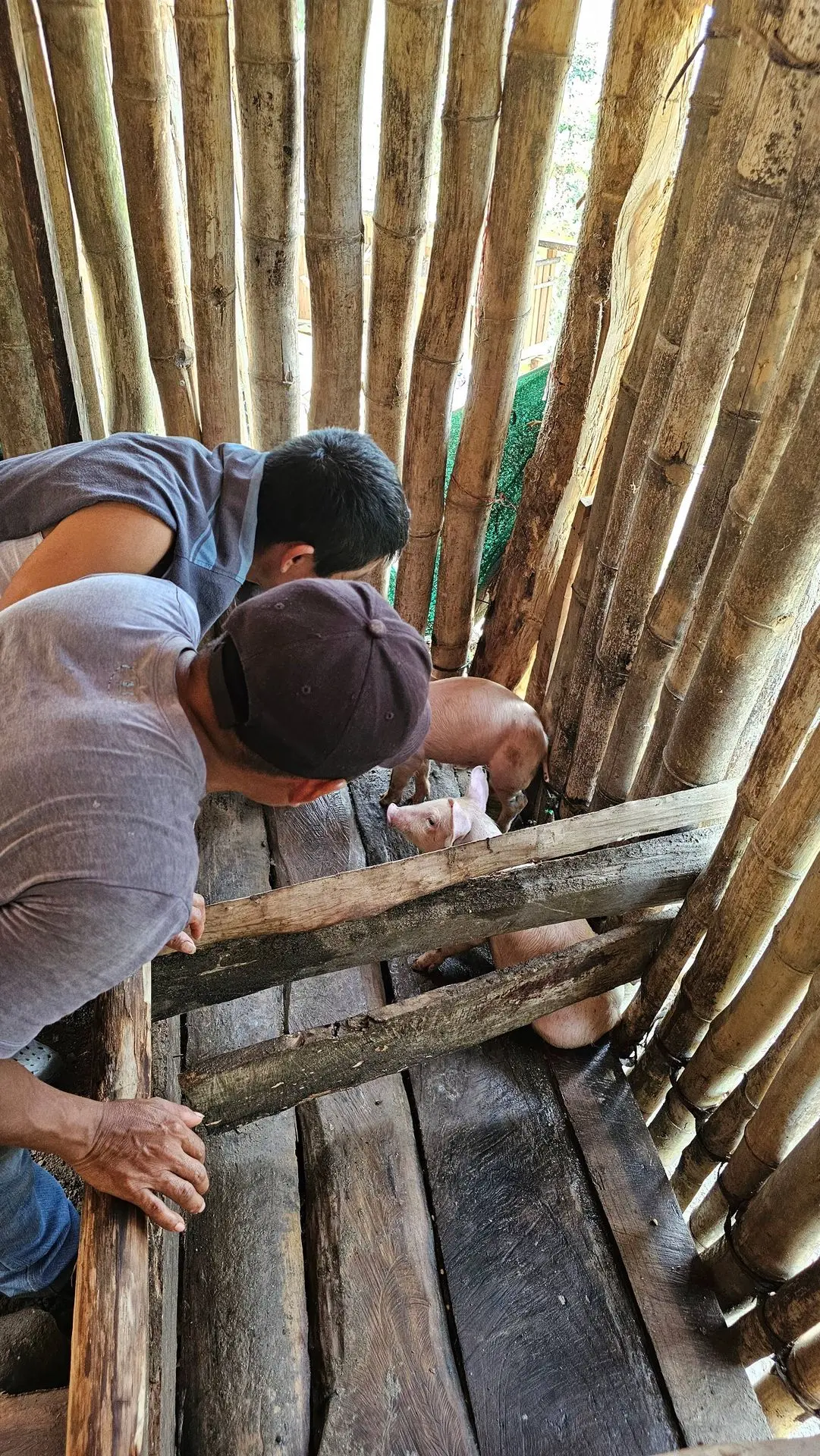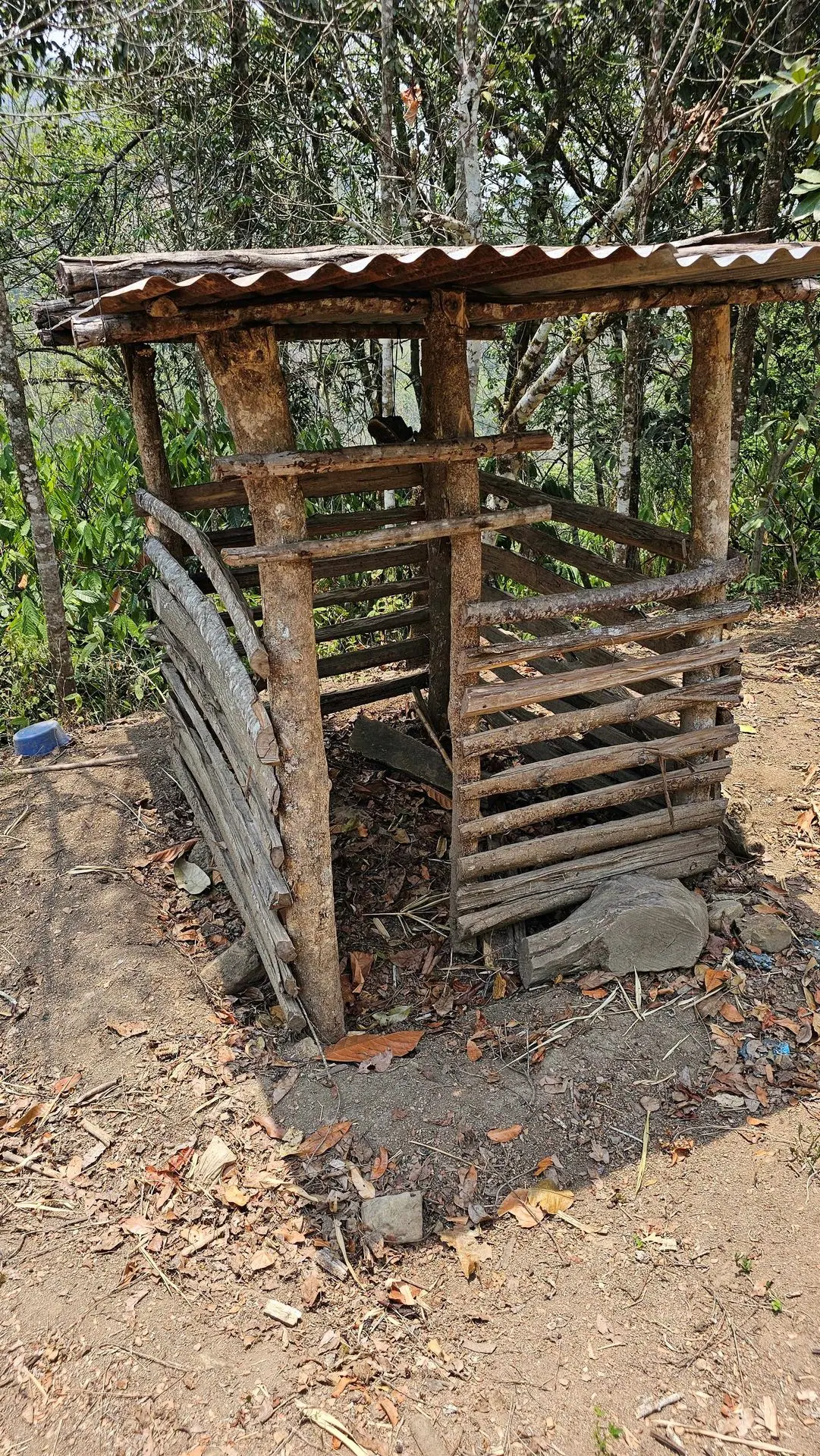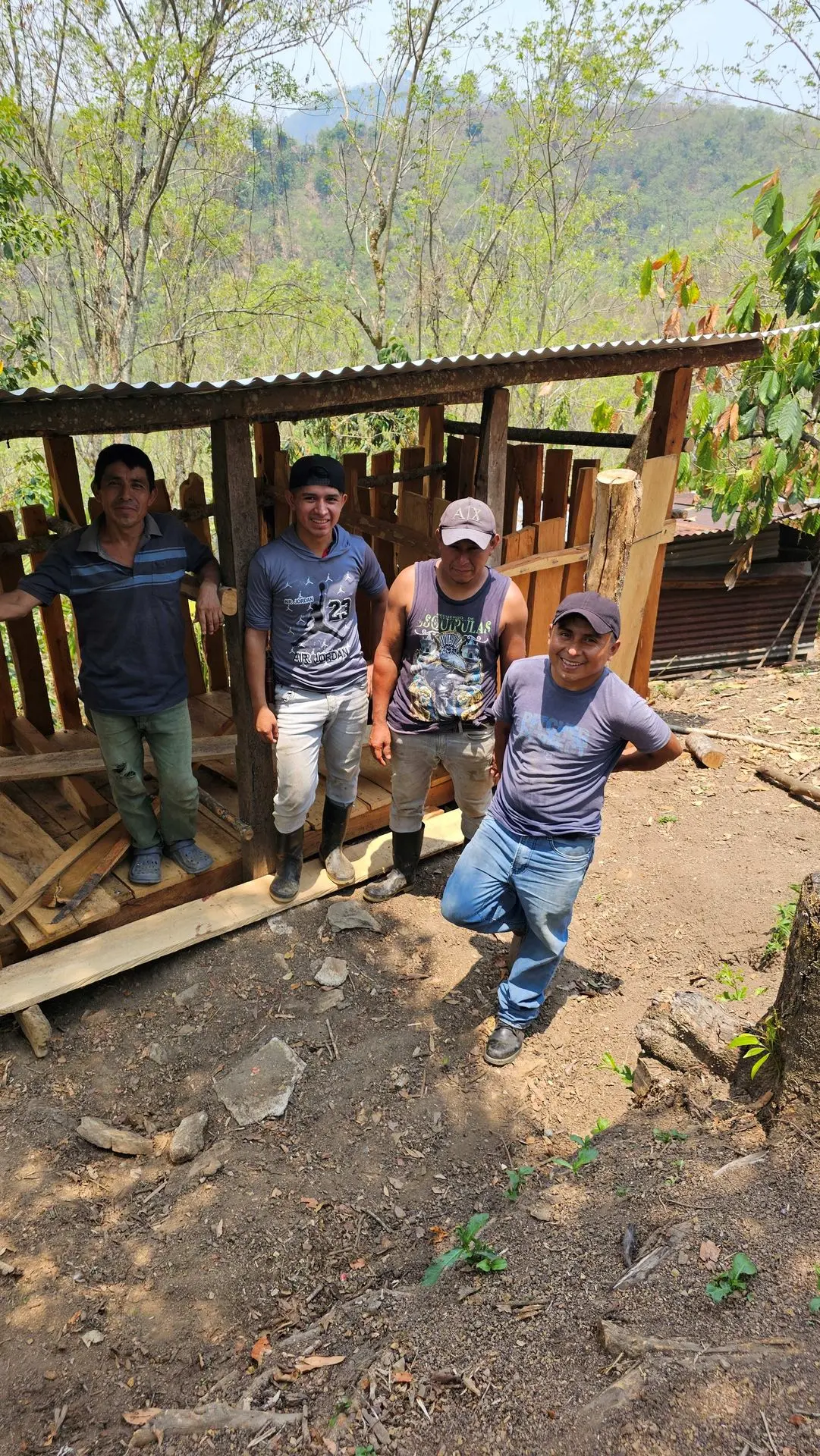Here in the remote, poverty-stricken regions of Guatemala, many families face the challenge of securing a stable income. For them, it is not only important to generate short-term revenue but also to create a long-term perspective that is sustainable and future-proof. The team at Corazon de Cacao has therefore teamed up with two local farmer groups to launch the pilot project - Schweinchen. The aim is to provide participating families with an additional source of income while also promoting community cohesion and personal responsibility. After the initial successes, we now need support to utilise the proven model and expand the project to more farmer groups, thereby supporting even more families.
The first phase: The start with five piglets
The project kicked off with the handover of five piglets to each of the two farmer groups. These piglets are primarily fed with what grows in the fields, but are also supplemented with additional feed purchased by Corazon de Cacao to ensure optimal nutrition and healthy growth of the piglets. The farmer groups were tasked with building suitable shelters for the piglets and caring for them daily. We do not see this project as merely a financial contribution from Corazon de Cacao, but as a community project that has been based on collaboration from the very beginning.
The involvement of the entire farmer group is an essential component of the project. Responsibility for the piglets is shared within the groups, which further strengthens team spirit and ensures that everyone is a part of the project. Family members and neighbours work hand in hand, whether it is in building the barns, daily feeding, or maintaining the enclosures. Through this close collaboration, the groups not only gain agricultural knowledge but also develop a strong sense of responsibility for the project.
Die Ställe sind übrigens aus Madre de Cacao gebaut. Ein Holz das unglaublich fest ist und sonst nicht genutzt wird. Ich (Andreas) hatte nur den Wunsch, dass die Schweinchen auch Auslauf haben. Fanden die Familien komisch, wurde aber umgesetzt.
The growth loop: From selling pigs to doubling piglets
After about seven months, when the piglets have grown into fine pigs, the first sale takes place. The proceeds from this sale are not simply spent, but are strategically reinvested. With the money earned, the groups now buy ten new piglets as well as a small amount of supplementary feed for the upcoming rearing phase. At this point, responsibility is fully placed in the hands of the farmer groups. They take over the project independently, manage the further process themselves, and can use the profits according to their own needs.
We would now like to include additional farmer groups in the project. These new groups will receive the same start-up support as the first two – five piglets and supplementary feed – allowing them to establish their own source of income. Through cyclical reinvestment and the proven model, the piglet project is growing organically and providing more and more families with the opportunity for economic independence.
Collective responsibility as the cornerstone of the project
The piglet project is much more than just a financial support model. It is based on the cohesion of the community and the trust in the farmers' self-responsibility. The daily work in the barns, the care and feeding of the piglets, as well as the management of the proceeds from the sales, are entirely in the hands of the farmers. This requires discipline, planning, and commitment – qualities that not only strengthen the community but also the self-confidence of the individual members.
A project like this is hardly conceivable without the close collaboration and shared commitment of all involved. In other words, because we had built trust through cocoa purchasing, the groups were willing to participate at all. The group members learn from each other, develop solutions to challenges, and recognise that their work directly contributes to the success of the project. This model promotes long-term independence and a new form of self-confidence within communities that often perceive themselves as economically disadvantaged.
The Vision: From a Small Project to a Model for Sustainable Development
The piglet project may seem small at first glance, but the impact on the participating families and the community is significant. Every pig sold, every newly born piglet, and every collaboratively built barn wall symbolises a new opportunity to improve the financial situation of the farmers and their families. In the long term, the project can become a model for further sustainable developments in the region and inspire other communities as well.
By using the success stories from the initial phases, we are laying the foundation for expansion to more and more groups. Corazon de Cacao hopes to develop the piglet project into a steadily growing income model that will benefit many Guatemalan families in the long term.
A cycle of hope and independence
The Piglet Project demonstrates that simple ideas can make a significant difference when they are well thought out and implemented with a focus on personal responsibility and sustainability. The participating farmer groups have not only gained a new source of income but have also strengthened their confidence in their own abilities. They are now part of a project that provides them with a perspective for the future and offers them the opportunity to improve their quality of life in the long term.
Corazon de Cacao will continue to stand by the farmers' groups to support and accompany them. We will also continue to source cocoa from these families. However, the goal is clear: the groups should take their economic development into their own hands and be able to increase their income through their own efforts. By also involving new farmers' groups, the piglet project can unleash its full potential as a sustainable model, which can grow from a small community initiative into a pioneering project for entire village communities in Guatemala.
Anther step is planed.
The marketing of the pigs is currently local. This naturally means that the prices that can be achieved are not as high as possible. For this reason, we are currently looking for a way to sell the animals in Coban, about 100 km away. We assist with the organisation, help with obtaining the necessary paperwork and with transport. At the beginning, the project's pickup will probably have to be used.
This project not only has an economic impact but also provides local people with perspectives and shows them that they can shape their own future.
P.S. I, the author, actually don't like pork and I eat 80% vegan :=)



